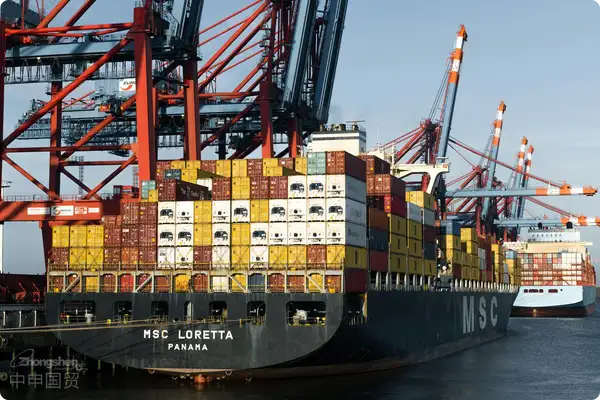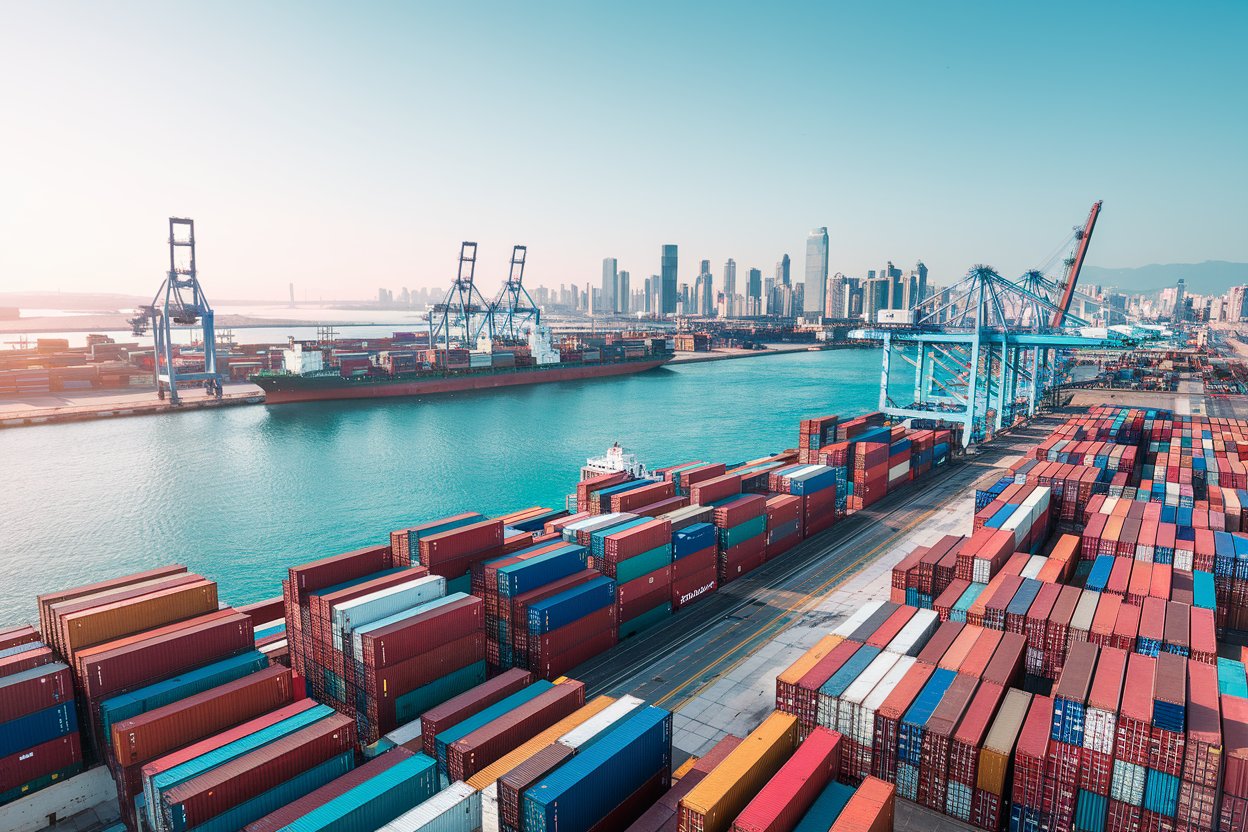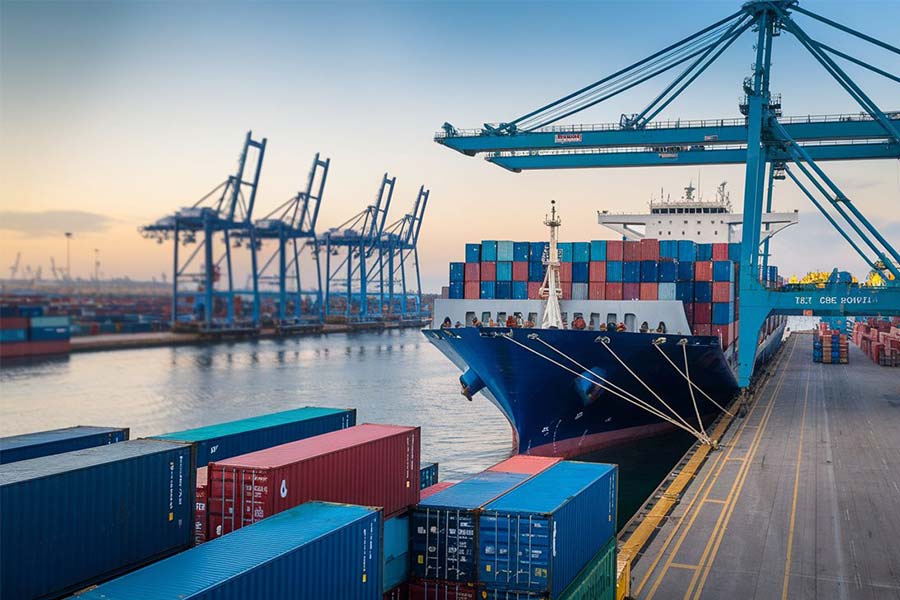- 20 Years of Expertise in Import & Export Solutions
- +86 139 1787 2118

Introduction
In today's globalized business environment, import operations are crucial for enterprises to expand their markets and acquire high-quality resources. Particularly when importing chain-related products from Japan, the process involves numerous complex procedures and stages. This article will provide a detailed exploration of this process, offering comprehensive and practical guidance for importers.
?Zhong Shen?Professional Competency in Document Processing
Document handling is the cornerstone of import operations. From commercial invoices and bills of lading to packing lists, each document carries critical information. ZhongShen International Trade boasts an experienced documentation team, well-versed in the regulatory requirements of various documents.
For example, the commercial invoice must clearly specify detailed information such as the description of goods, quantity, and value. This serves not only as a crucial basis for customs declaration but also as a key document for settlement between buyers and sellers. The bill of lading, as a certificate of ownership for the goods, directly affects the delivery of goods based on the accuracy of its completion. The team at ZhongShen International Trade meticulously verifies each item to ensure the accuracy and consistency of the documents, thereby avoiding delays or penalties caused by documentation issues.
When handling documentation related to Japanese imported chains, the team will accurately prepare various types of documents in accordance with Japan's local trade regulations and customary practices. For instance, Japan may have special labeling requirements for certain specific products, and these requirements will be considered and met in advance during document preparation to ensure smooth customs clearance of the goods.
Professional control of logistics arrangements
The logistics process is like the lifeline of import operations. When transporting chain products from Japan, the choice of transportation method is crucial. If the shipment volume is substantial and the time requirement is not particularly urgent,?Ocean shipping?It is a relatively economical choice. ZhongShen International Trade maintains long-term and good cooperative relationships with major shipping companies, enabling us to secure competitive freight rates and shipping space.
During the maritime shipping process, transportation routes will be rationally planned, taking into account factors such as the busyness of Japanese ports and the loading and unloading efficiency of the destination ports. For example, when shipping from Japan to certain Chinese ports, the most suitable sailing schedule will be selected based on seasonal variations and route congestion. If the cargo is more urgent,?air freight?is the preferred choice. ZhongShen International Trade collaborates with professional air freight forwarders to ensure fast and secure transportation of goods.
After the goods arrive at the destination port, subsequent processes such as customs clearance, warehousing, and distribution are involved. ZhongShen International Trade will communicate in advance with local customs clearance agents, prepare complete customs clearance documents, and expedite the customs clearance procedures. For warehousing, suitable warehouses will be selected based on the characteristics of the goods to ensure that chain products remain moisture-free and undamaged. Finally, through a professional distribution team, the goods will be delivered to the customer's designated location promptly and accurately.
The unique advantages of the Russian market – VTB?Foreign exchange settlement?
When it comes to importing chain products from Japan for resale in the Russian market, ZhongShen International Trade has significant foreign exchange settlement advantages. Foreign exchange settlement, simply put, is the process of converting foreign currency into domestic currency. In trade with Russia, VTB Bank plays a crucial role.
VTB Bank is a major financial institution in Russia, and China-Shen Trading has established a close cooperative relationship with it. When conducting trade settlements with Russian clients, using VTB's channels for foreign exchange settlement offers high efficiency and convenience. On one hand, VTB has an in-depth understanding of local trade regulations and financial policies in Russia, enabling it to swiftly handle various settlement transactions. On the other hand, in complex trade scenarios, such as those involving large sums or trade financing needs, VTB can provide professional solutions.
The specific process is as follows: after completing the transaction with the Japanese supplier, the importer receives payment from the Russian customer and conducts foreign exchange settlement through VTB Bank. VTB Bank converts the foreign currency into RMB at the prevailing exchange rate and promptly credits the account. This process not only shortens the settlement time but also reduces the risks associated with exchange rate fluctuations, providing strong support for the importer's business expansion in the Russian market.
Southeast Asian market?Import/export?Process and Solution
Importing chain products from Japan into the Southeast Asian market involves a rigorous process. The first step is market research and signing procurement contracts. Importers need to understand the local demand for chain products, quality standards, and price levels in Southeast Asia. ZhongShen International Trade will assist importers in conducting market research, analyzing local competitors and potential customers.
Upon confirming the procurement intent, a procurement contract is signed. The contract must clearly specify key terms such as the specifications, quantity, price, delivery period, and payment method of the goods. For example, common payment methods include?L/C?(L/C), telegraphic transfer (T/T), etc. If a letter of credit is chosen, China Shen International Trade will assist the importer in reviewing the L/C terms to ensure they align with the contract content, thereby mitigating risks arising from discrepancies in the letter of credit.
Next is the transportation arrangement, which is similar to the logistics arrangement mentioned earlier but requires adjustments based on the port characteristics and transportation conditions of different Southeast Asian countries. For example, Singapore's port facilities are advanced, with high transportation efficiency, while some landlocked Southeast Asian countries may require transshipment via land transport.
After the goods arrive at the destination port in Southeast Asia, customs clearance is a critical step. The customs clearance policies and requirements vary significantly among Southeast Asian countries. Taking Indonesia as an example, there may be strict quality inspections and certification requirements for imported products. Zhongshen International Trade is well-versed in the customs regulations of various countries and will prepare all necessary documents in advance, such as commercial invoices, bills of lading, packing lists,?Certificate of Origin?Books, etc. At the same time, we will work closely with local customs clearance agents to ensure smooth customs clearance of the goods.
In terms of product certification, although ZhongShen International Trade does not directly handle certification services, it will inform importers of the required certification types. For example, in Malaysia, certain industrial products may need to obtain SIRIM certification. ZhongShen International Trade will assist importers in gathering the necessary documentation for certification, communicate with certification bodies, and ensure that importers can smoothly obtain certification, enabling products to enter the Southeast Asian market in compliance with regulations.
Challenges and Opportunities in the Current International Trade Landscape
The current international trade situation is complex and ever-changing, presenting both challenges and opportunities for the business of importing chain products from Japan.
In terms of challenges, the rise of trade protectionism is a major issue. Some countries impose high tariffs or non-tariff barriers to protect their domestic industries. For instance, certain nations may initiate anti-dumping investigations on imported chain products and raise import tariff rates, which undoubtedly increases import costs. Additionally, exchange rate fluctuations also pose risks to import businesses. The instability in exchange rates between the Japanese yen, the Chinese yuan, and other related currencies may lead to significant short-term volatility in import costs.
However, opportunities also exist. With the gradual recovery of the global economy, the demand for chain products in the market is increasing. Particularly in sectors such as infrastructure construction and manufacturing, the demand for high-quality chain products continues to grow. Meanwhile, the strengthening of regional economic cooperation has also facilitated import businesses. For instance, the signing of certain free trade agreements has reduced trade barriers, lowered tariff costs, and enhanced product competitiveness.
Conclusion
Importing chain products from Japan involves numerous steps. With its expertise in document processing and logistics arrangements, as well as its advantage in VTB settlement in the Russian market, combined with a deep understanding of import-export procedures in the Southeast Asian market and the ability to provide tailored solutions, China Shen International Trade can assist importers in seizing opportunities and overcoming challenges within the complex international trade environment, ensuring smooth import operations. Importers should fully leverage professional...?Foreign trade?The advantages of agency, combined with one's own business needs, achieve steady business development.
? 2025. All Rights Reserved.










